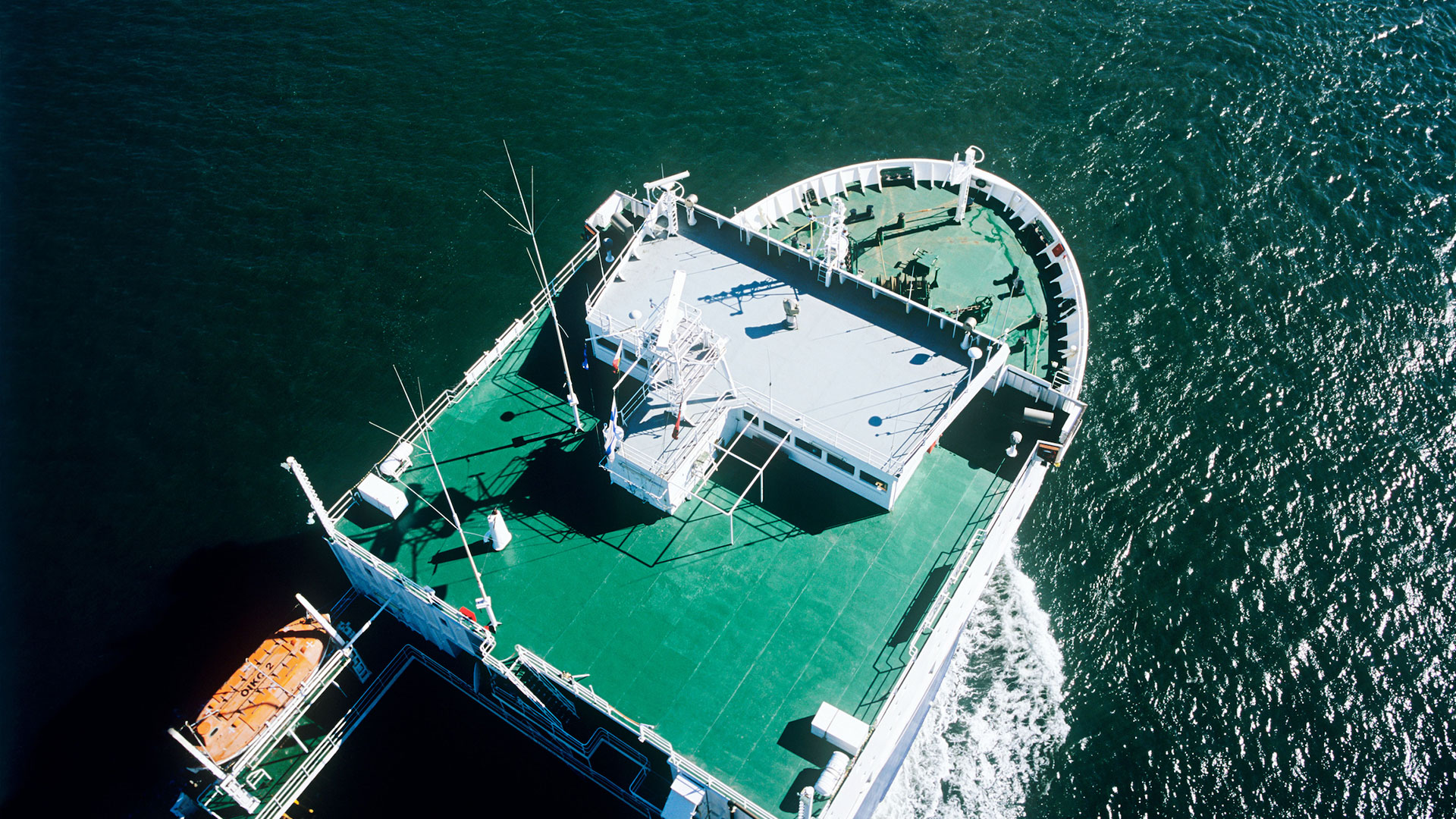What is the value of a bill of lading in the hands of a financier, after the financed cargo has been discharged by the shipowner without presentation of the bill? The Court of Appeal had to consider this very question in the recent case of Unicredit Bank A.G. v Euronav N.V. [2023] EWCA Civ 471.
The Court of Appeal found that the bill of lading contained/evidenced a contract of carriage, as opposed to being a mere receipt, but dismissed the Appeal for lack of causation. That contract of carriage had been breached by the shipowner in delivering without production of the bill of lading, but such breach had not caused the bank’s loss.
In our latest article we analyse the outcome of this case and provide guidance for all parties to consider as a result of this ruling.
Background
BP Oil International Limited (BP) had contracted with Gulf Petrochem FZC (Gulf) for the sale of a cargo of sulphur fuel oil. BP had voyage chartered the vessel Sienna from the Defendant (Euronav) for this purpose and had entered into a charterparty on the BPVOY 5 standard form (the Charterparty). Euronav issued a bill of lading naming BP as shipper (the Bill of Lading), but the Charterparty did not require presentation of the Bill of Lading on discharge of the cargo. Rather, Clause 30.7 of the Charterparty allowed for discharge without production of the Bill of Lading on the instructions of the charterer and in exchange for an indemnity from the charterer.
Following the sale of the cargo to Gulf, the parties entered into a novation agreement in respect of the Charterparty (the Novation Agreement). The Novation Agreement provided for Gulf’s replacement of BP as voyage charterer and that discharge was to be STS at Sohar, Oman.
In accordance with Gulf’s instructions, Euronav discharged the cargo by STS transfer to two vessels in Oman, and did so without presentation of the Bill of Lading. Euronav was not, however, aware at the time of discharge that the sale and purchase of the cargo had been financed by the Claimant (Unicredit), who had acquired a security interest over the cargo and the Bill of Lading pursuant to the financing arrangements.
Although Gulf had, on the instructions of Unicredit, asked BP to indorse the Bill of Lading directly to Unicredit ahead of discharge, due to Covid-19 delays, the Bill of Lading was not indorsed by BP and received by Unicredit until after discharge. By this point in time, Gulf had defaulted on its repayment obligations to Unicredit and it appeared that Gulf was guilty of fraud in relation to the cargo.
Unicredit accordingly brought a claim against Euronav for breach of contract contained/evidenced in the Bill of Lading, on the basis that Euronav had delivered the cargo without presentation of the Bill of Lading.
The Decision at First Instance
At first instance, Unicredit’s claim for breach of contract was unsuccessful. The Judge reasoned that:
- There had been no breach of contract by Euronav. The Bill of Lading was a “mere receipt” in the hands of BP at the date of discharge, and the Charterparty (which allowed for discharge without production of the Bill) regulated, exclusively, the contractual relationship between BP and Euronav. The Judge explained that this had been the intention of the parties and this was so regardless of whether BP had ceased to subsequently act as charterer due to the Novation Agreement (the Contract Issue).
- Furthermore, even if the Bill of Lading did contain/evidence the contract of carriage, any loss occasioned by Unicredit was not attributable to Euronav’s breach. Unicredit had implicitly, if not expressly, approved of discharge without presentation of the Bill of Lading. Moreover, even if Unicredit had not expressly/implicitly made such approval, the Judge’s position was that it would have, had it been asked by Euronav to provide instructions (the Causation Issue).
Unicredit appealed both of these findings.
The Court of Appeal’s Decision: Dismissal of the Appeal
On appeal, Unicredit was successful in challenging the Judge’s decision on the Contract Issue. The Court of Appeal identified that the relevant question was “whether the Bill [of Lading] contained or evidenced a contract of carriage between [Euronav] and BP at the time of discharge”. This was to be ascertained by looking at the parties’ presumed intentions, subject to any contrary indication.
The Court of Appeal concluded that if the charterparty ceased to govern the relationship between BP and Euronav, both parties would “expect the completion of the voyage to be carried out on the terms of a contract, not in a legal vacuum. The bill of lading provide[d] that function”. On the facts, it was impossible to attribute to Euronav, from the mere existence of the Novation Agreement, a contrary intention that all contractual relations with BP should cease following the novation. To do so would produce anomalous results. Thus, the Bill of Lading “was not a mere receipt in BP’s hands at the time of discharge; it had become a document containing or evidencing a contract with BP from the date of the Novation Agreement, and remained so at the date of discharge”. Euronav had therefore committed a breach of contract by discharging the cargo without production of the Bill of Lading.
Even if that had not been the case, and the Bill of Lading was a mere receipt at the time of discharge, the Court of Appeal was content that a breach of contract had occurred in any case by virtue of Section 2(1) of the Carriage of Goods by Sea Act 1999 (COGSA). This was because, upon a bill of lading being indorsed, a contract not only “springs up” but it is treated under COGSA as always having existed, retrospectively, from the date of issue of the bill of lading. This is “no less true where indorsement takes place after discharge”. Therefore, when BP indorsed the Bill of Lading, subsequent to discharge, a contract of carriage arose with retrospective effect, rendering Euronav’s discharge without production of the Bill of Lading a breach of contract.
Notwithstanding Unicredit’s success on the Contract Issue, Unicredit lost the Appeal on the basis of the Causation Issue. The Court of Appeal noted that “the obligation to deliver against a bill of lading is a contractual one which can be varied by express consent to the contrary.” On the basis of the factual findings at first instance, the Court concluded that had Euronav initially refused to discharge without production of the Bill of Lading, they would have approached BP for instructions who would have referred them to Unicredit, and they in turn would have in any event permitted the discharge. As such, the discharge would not have been in breach of contract and so it could not be said that Euronav’s breach of contract was the effective cause of Unicredit’s loss.
Key Takeaways
The Court of Appeal’s judgment has potentially far reaching implications for financiers involved in commodity trade financing. It is helpful to financiers that the Court provided greater certainty as to the contractual status of the bill of lading – finding that it is the presumed intention of the parties that a bill of lading will contain or evidence a contract of carriage and that a contract of carriage springs up even retrospectively pursuant to COGSA.
On the other hand, the Court’s finding on the Causation Issue is potentially more problematic from a market practice standpoint. The Court of Appeal took the view that this was a fact specific case, but it did acknowledge that it may open the door for shipowners who have discharged without production of a bill of lading to argue that any claim brought against them for breach of contract fails for causation. Unhelpfully for those relying on this security, the Court of Appeal’s response to this was simply to note that this was the result of the application of conventional principles to which the practical consequences for market practice must yield.
Cargos invariably arrive before paper bills have passed through the chain of contracting parties, leading to the widespread use of LOIs and, in this case, the counterfactual enquiries made by the Court of Appeal. One potential solution would be to switch to electronic bills of lading. Such bills can be transferred instantaneously, providing greater visibility to the financier in the chain, and are designed to ensure that only the rightful holder of the bill authorises discharge of the cargo. While an electronic bill would not have given the bank better security, it should reduce the risk of frauds and would have avoided the counterfactual enquiries made by the Court of Appeal in this case. There are a number of electronic bills of lading products on the market that seek to replicate the effect of paper bills by contract, but uptake will no doubt be assisted if the Electronic Trade Documents bill (the ETDb) becomes law. This is currently being considered before the House of Commons, and seeks to address the issue of possession of electronic documents by expressly providing that an electronic trade document, such as a bill of lading, is capable of being possessed as a matter of law (section 3(1) ETDb) and has the “same effect as an equivalent paper trade document” (section 3(2) ETDb).
Ultimately, the Court’s judgment serves as a timely reminder of the risks involved in discharging cargo without production of the bill of lading, and the associated legal costs that can arise in such circumstances for both shipowners (whose P&I coverage may be prejudiced by a misdelivery claim) and financiers.
Permission to appeal has been refused by the Court of Appeal but Unicredit has also sought permission from the Supreme Court.







